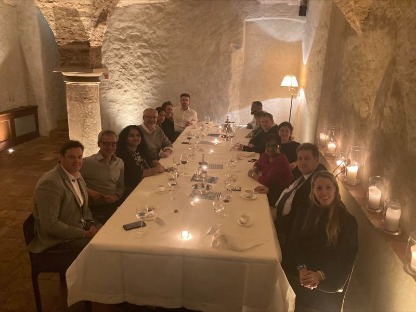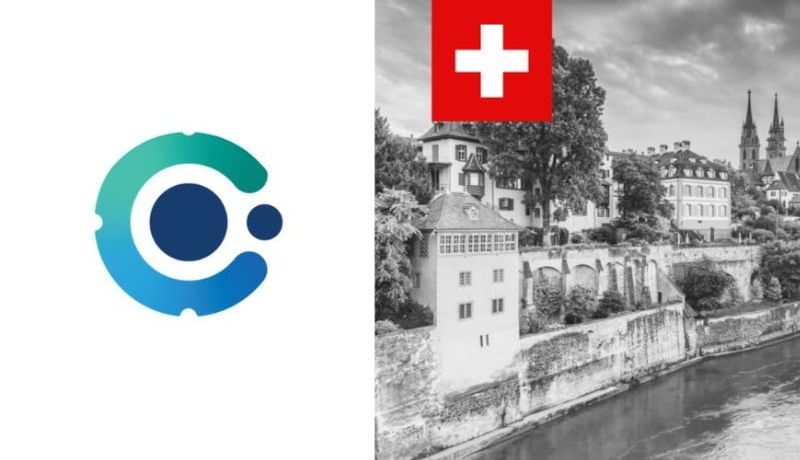Barry Winkless isCSO of Cpl and Head of the Future of Work Institute. Barry and representatives of Cpl's Life Sciences (Switzerland) team hosted a private dinner, to discuss the future of work in life sciences. In this insightful article, Barry shares his personal account and key takeaways from the evening.

Take a moment to picture the scene. The beautiful surroundings of Basel, a delicious meal at Les Trois Rois, wonderful company and lively conversations. In November, talent and HR leaders from across the Life Sciences sector and Cpl came together to discuss talent, the future of work, and other topical stories, over dinner in Switzerland.
What stayed with me most about that dinner was not the food or location, which were both fantastic, but the frankness of discussions and the genuine goal of many of the leaders there to create places of belonging for their people. There was a general feeling that whilst we cannot force a sense of belonging, we can at least create the conditions where people can be themselves and where they feel a sense of connection to their company and colleagues. What was most interesting on this topic is that belonging is a ‘feeling’- it’s not a ‘think’ or a ‘do’ thing.
The genuine goal of many of the leaders was to create places of belonging for their people
We must go deeper to understand the human condition if we are to fully harness this ‘feeling’ of belonging within our organisations. Many suggested that we often over complicate what we are trying to do from a talent and hr perspective and that ultimately it boils down to this feeling- particularly in the context of the Life sciences sector which is, at its core, a purpose driven sector.
I suggested that a good first step in propagating the conditions for belonging is the creation of a company ‘show bible’—a concept borrowed from the idea of a TV series show bible, which is used to pitch new shows to executives. Your company show bible should capture the essence, the stories, the tone, the visuals, the context, the value, the culture—and beyond—to fully encapsulate the truth of an organisation. We have done many of these programs with companies and the results are often surprising and always unique. This concept excited most of the diners and this is because, I would suggest, that a rich and deep living story of an organisation is something that can connect the dots on belonging.
A company ‘show bible’ should capture the essence, the stories, the tone, the visuals, the context, the value, the culture and beyond to fully encapsulate the truth of an organisation
Leadership was another topic covered—discussed over dessert (if that has a deeper meaning!)—what traits do leaders need to have in life sciences, and can we identify leaders meaningfully? Great—and often impassioned—discussions took place over this topic. Most agreed assessment approaches are lacking and only a partial view of what makes someone a leader. Leaders often grow within a particular context and often within crises situations, leaders ‘show up’. The majority agreed that leaders in life sciences must have a deep sense of purpose with the end patient always in mind, coupled with a keen sense of empathy and an inclusive approach to getting things done. My view is that the best way to understand if someone is a leader is to ask ‘how many leaders have they themselves created’- because surely one of the key roles of a leader is to create more leaders? For what it’s worth, my definition of leadership is this, which is based on our work at the Future of Work Institute:
‘Energised social influence that empowers the efforts of others towards something meaningful’
Sarah Goddard, Switzerland Country Director said:
"This topic really resonated with me, and it was great to hear ideas and shared thoughts from the floor—it transpires from our client interactions that most don’t have any kind of structure or system for assessing internal or external leadership potential, so it was quite a prudent subject to bring up for reflection and thoughts…hopefully to sow some seeds ahead of an ever competitive and growing local market; finding engaging leaders and retaining them is possibly one of the hardest aspects for HR and Talent Leaders’"
Talent attraction was another hot topic, especially considering the ongoing talent shortages and challenges affecting many sectors. My Cpl Life Sciences colleagues and I highlighted the need for a professionalised and truly global approach to identifying the right talent, coupled with an open mind to broaden search and perspectives ‘beyond the role’. This sparked a broader discussion on what attracts people to working for life sciences business. I highlighted some of the Future of Work Institutes’ work in this area. Meaningful and purposeful work, access to interesting projects, flexibility, and development are all big attractors for people in the sector. An excellent discussion was then had on the different generations, in particular Gen Z, who aspire to work with companies who think beyond profit and have a broader social conscience.
There is a need for a professionalised and truly global approach to identifying the right talent, coupled with an open mind to broaden search and perspectives ‘beyond the role’
And with that, coffee was served, and it was time for me to say goodbye, or at least an ‘au revoir’, to my new life sciences friends. The discussions, which spanned various leadership styles and contexts—from scale ups to well-established organisations heartened me. I had an overwhelming feeling of positivity—and given my cynical nature—this can only be a good thing!
The Cpl Team found the whole evening and follow-up truly inspiring – our relationships go far beyond recruitment partners, Cpl's Future of Work Institute team look to make our collaborators ‘Future ready’ so having such open-minded, thoughtful conversations was fantastic.
Clients commented:
